Digital PR is Not “Just Doing PR Online”
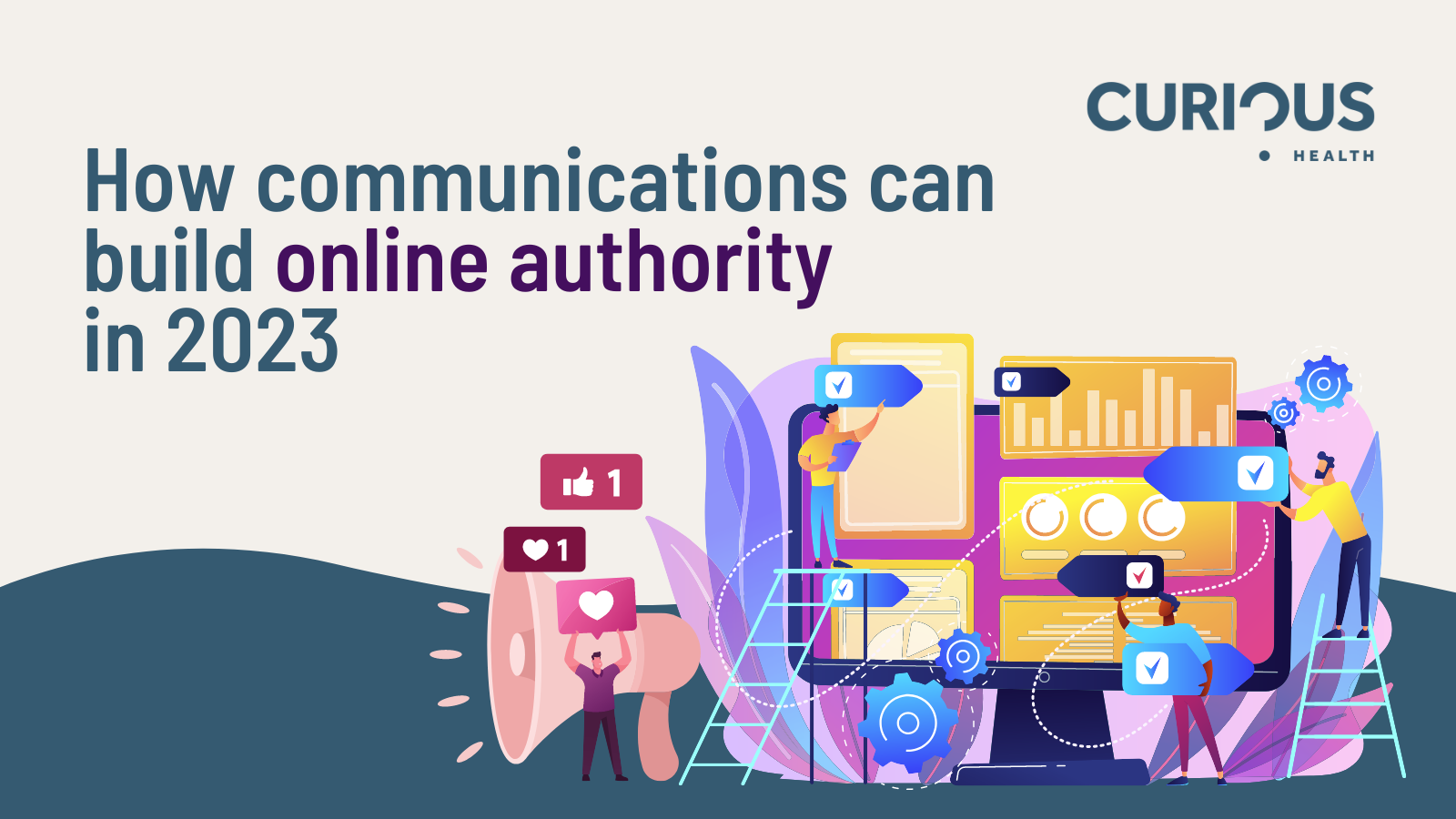
As we entered into the 2010s, a phrase that would result in sage nods around a meeting table was “there is no such thing as digital PR, all PR is digital”. Well, at Curious Health we’re making the argument for bringing back the term digital PR. Just because content exists online, it doesn’t mean that it is doing the job that it should be, i.e. building online authority for companies and brands.
Good digital PR will do the job of building online authority, whilst delivering on the classic communications discipline of growing reputation. Yet communications programmes in health rarely have a strategy for what we call off-site Search Engine Optimisation (SEO).
At Curious Health we apply five principles to ensure that our communications programmes are more than just PR online. They are designed to meet audience needs, build online authority and grow the reputation of our clients.
1. Think ‘audience first’
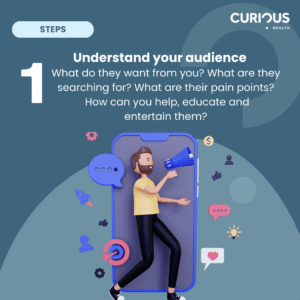
The starting point to using communications to build online authority is to understand what audiences want from you. What are they searching for? What are their pain points? What can you support, educate and entertain them with (yes, even in health!)?
Of course, the majority of our audiences are online. 80% of patients Google a recommended or newly-prescribed medication. And HCPs routinely use search engines too.
Speaking at the Cannes Lions Festival in 2022 Pandu Nayak, Google Fellow and part of the Search Leadership team, said, “People have an insatiable curiosity – 15% of searches each day we have never seen before.”
People are both overloaded with information and asking more questions than ever before. We have to show up in places where people are searching for information and answer their questions with authoritative, accurate and balanced information.
2. Understand how search engines will rank and serve up your content, now and in the future
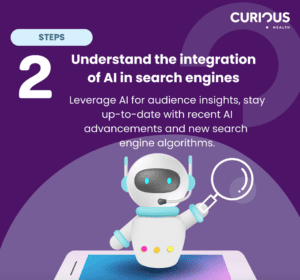
The integration of AI in search engines such as Google and Bing is revolutionising the way people find information online. Embracing AI in health communications opens up a world of possibilities, transforming how information is delivered, received, and acted upon by patients, healthcare professionals, and the general public.
AI-powered algorithms are becoming increasingly sophisticated and personalised; Google and Bing can now understand and interpret users’ search intent more accurately delivering more relevant content. We are witnessing a race for innovation between the two ‘technology titans’.
If you think about it, right now, we are experiencing ‘the worst version of AI we’ll ever have’, AI is in a race of constant innovation, and in just a few years from now, AI will blow our minds even more.
Google announced last week their new ‘core search product’ that embeds more AI in its answers. Search Generative Experience detects if generative AI can be used to answer a query. If so, the top of the results page will show the AI-generated response with the links to where it took the information from. After that you’ll be able to see traditional links. Users will also be able to enter a brand-new “conversational mode,” which similar to Bard and ChatGPT remembers the user’s prior questions so users can ask follow-ups more easily. This is currently being tested and will be released in the USA first and there is currently no official date for release in other countries.
There is also no official guidance on how the Search Generative Experience algorithm will work. There is speculation that relevancy to your audience, and engagement with content, is going to become even more important than it currently is.
3. Create relevant content
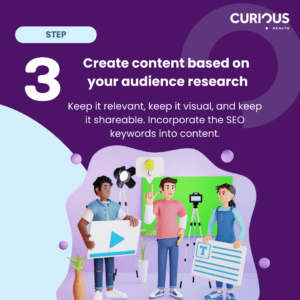
We must be laser-focused on creating content that is relevant to our audiences, which is why the audience-first approach is critical. AI tools can help us understand the needs of our audiences, unlock insights to deliver exceptional personalised content and experiences that strongly resonate with them. However, they also present us with the greatest challenge of staying relevant in a rapidly evolving digital landscape, with the lead times required for approval of all materials. Having communications experts that can create relevant, authentic content within these constraints is key.
The content strategy should align with the SEO strategy so that we include keywords in media materials, patient activation programmes and HCP educational content. This is one very important aspect of offsite SEO.
4. Build relationships
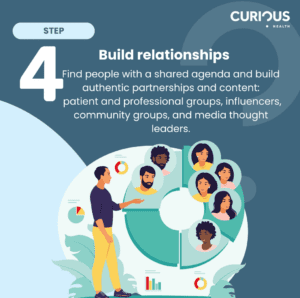
The discipline of communications is uniquely placed to support the development of strong relationships between companies and stakeholders. These people will fall into the following categories:
- Individual healthcare professionals and KOLs
- Individual patients – see our blog on ensuring the patient voice is heard in communications programmes
- Patient and professional groups
- Community groups
- Policy makers
- Payers
- Employees
- Online influencers – see our blog on the power of influencer collaborations in pharma
- Media thought leaders
Finding stakeholders who can help you understand more about your audiences and their needs, have a shared agenda for positive change and collaborating in a transparent way helps grow reputation.
By developing these relationships your communications programme will have essential third-party endorsement and be more relevant and therefore impactful.
5. Earn backlinks
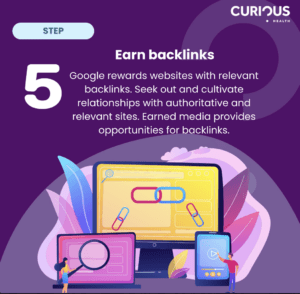
Having strong relationships with your stakeholders puts you in a better position to ask for backlinks to your online content. Having relevant and authoritative websites link to your own means that your site ranks higher in a google search and more people can find it.
Media coverage provides an opportunity for backlinks, although not all journalists and publications will provide them.
Backlinks are a critical part of offsite SEO and will work together with your technical SEO and SEA to build online authority.
Conclusion
Creating content and building relationships with stakeholders is most likely already part of your healthcare communications work and will help grow reputation. However, having a deliberate strategy for offsite SEO can turn these standard tactics into an engine to drive your online authority – ultimately reaching more of your audience with relevant, impactful content.
If you’d like to chat to us about how Curious Health can help you to build hard-working communications programmes email us at [email protected]
